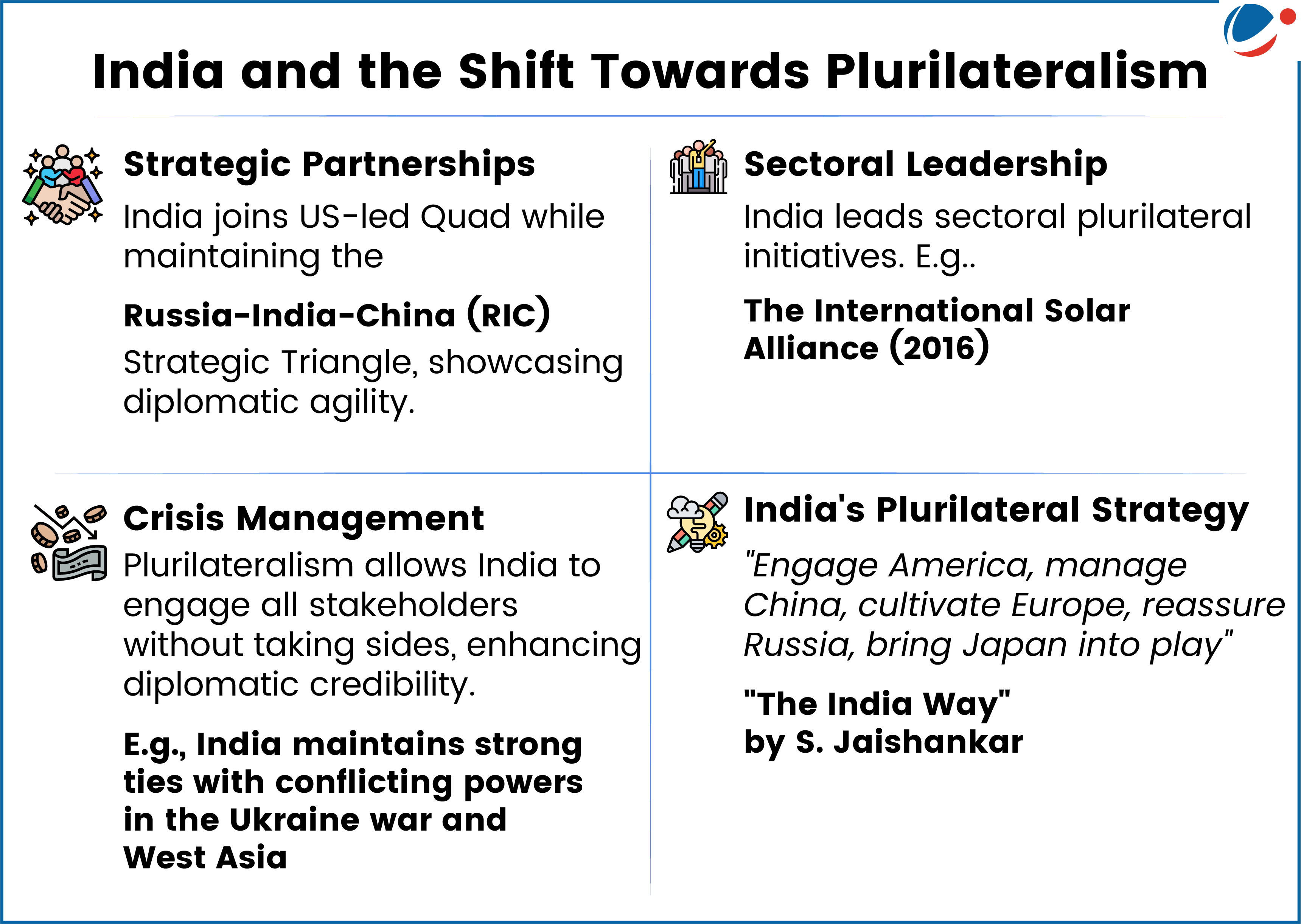At the G20 session on 'Global Geopolitical Situation,' EAM criticized dysfunctional multilateralism and emphasized plurilateralism for inclusive, transparent global cooperation to address global deficits.

About Plurilateralism
- Definition: Plurilateralism is a governance strategy where a subset of countries within a larger multilateral framework come together to negotiate agreements on specific issues.
- Plurilateralism vs. Multilateralism
- Unlike Plurilateralism, Multilateralism involves agreements among all or most members of the international community (e.g., WTO, UN treaties).
- Plurilateralism is agile and targeted, contrasting with multilateralism’s inclusive but often gridlocked consensus.
Causal Factors for Rise in Plurilateralism
- Faster Decision-Making: Avoids delays from broad multilateral talks. E.g., The Multi-party Interim Appeal Arrangement (MPIA) was created to address the dysfunction of the WTO’s Appellate Body
- Focus on Specific Issues: Enables targeted collaboration in key areas. E.g., The Minerals Security Partnership (MSP) is a U.S.-led initiative to secure critical mineral supply chains and reduce reliance on China.
- Bypassing Multilateral Stalemates: Helps overcome deadlocks in global institutions. E.g., WTO Doha Round failure led to Regional Trade Agreements (RTAs).
- Strategic Alliances and Geopolitical Shifts: Countries are forming strategic alliances through plurilateral agreements to enhance cooperation in trade, technology, and security. E.g., AUKUS.




